[동아시아포럼] G7에서 펼쳐질 일본의 균형 잡기 쇼
5월 19일 예정된 히로시마 ‘G7’ 호주, 인도 등 초대 경제, 환경, 에너지, 식량 안보 등 떠오르는 ‘글로벌 사우스’ G7 의제의 대부분은 중국 겨냥할 전망, 보호주의 강화될까
[동아시아포럼]은 EAST ASIA FORUM에서 전하는 동아시아 정책 동향을 담았습니다. EAST ASIA FORUM은 오스트레일리아 국립대학교(Australia National University)의 크로퍼드 공공정책 학교(Crawford School of Public Policy) 산하의 공공정책과 관련된 정치, 경제, 비즈니스, 법률, 안보, 국제관계 및 사회에 대한 분석 및 연구를 위한 플랫폼입니다.
저희 폴리시코리아(The Policy Korea)와 영어 원문 공개 조건으로 콘텐츠 제휴가 진행 중입니다.
ANU Press는 세계 최초이자 최대 규모의 오픈 액세스 대학 언론사입니다. 아시아 및 태평양 연구, 호주 정치, 인문학, 예술, 원주민 연구, 과학 등 광범위한 주제에 대해 동료 심사를 거친 연구를 출판합니다. 2004년에 설립된 ANU Press는 오픈 액세스 학술 분야의 혁신에 자부심을 가지고 있습니다. 현재까지 ANU Press는 1,000개 이상의 출판물을 발행했습니다.
일본은 5월 19일부터 21일까지 히로시마에서 기시다 후미오 총리 주최 하에 선진 7개국(G7) 정상들과 함께 글로벌 규칙 제정에 이바지하고자 희망하고 있습니다. 이를 위해 궁극적으로는 중국의 행태를 더 바람직한 방향으로 인도하고, 방황하는 미국을 국제 경제에서 건설적인 역할을 수행할 수 있도록 유도하며, 신흥 시장이 적극적인 경제 참여가 가능할 의제들을 추진해야 합니다.
대부분의 에너지와 원자재를 외부에서 확보하며 기술, 상품, 자본에 대한 시장 개방을 추구하기 위해 규칙 기반의 국제 경제 질서에 전략적으로 크게 의존하는 세계 3위의 경제 대국인 일본은 현 체제에 큰 균열이 발생하는 것을 감당하기 어렵습니다. 과거 미국의 주도를 따르던 일본은 미국이 국제 무역 체제의 집행자에서 파괴자로 역할을 바꾸는 와중에도 글로벌 규칙 제정에 기여하기 위해 노력해 왔습니다.
일본 리더십의 눈부신 성과는 도널드 트럼프 전 대통령이 미국을 탈퇴시키고 조 바이든 현 행정부가 CPTPP에 재가입하지 않기로 결정했을 때, 포괄적-점진적 환태평양경제동반자협정(CPTPP)의 형태로 환태평양경제동반자협정(TPP)을 구조조정한 것입니다. 이후로 확장되어 작년에 중국이 CPTPP 가입을 요청했고, 올해 3월에는 영국이 CPTPP 가입 협정에 서명했습니다. 일본은 또한 2019년 오사카 G20 정상회의를 계기로 데이터 및 디지털 규칙을 위한 다자간 프레임워크를 구축하기 위해 신뢰 기반의 데이터 자유 이동(DFFT: Data Free Flow with Trust)에 착수했고, 중국과 미국이 이에 동참했습니다.
일본은 2016년 이세지마에서 G7을 개최했을 때, 고품질 인프라 투자를 촉진하기 위한 원칙을 제시했습니다. 국가 간 인프라 투자는 중국의 일대일로(BRI)가 시작되면서 표준과 규칙을 설정하는 글로벌 거버넌스의 부재가 지정학적 마찰을 초래하는 또 다른 영역이었습니다. 이 의제는 G20 오사카 정상회의까지 이어져, 중국은 2018년 초 발표된 중국과 일본 간 공동 인프라 프로젝트와 함께 고품질 인프라 투자를 위한 G20 원칙에 동의했습니다. 2019년 중국의 두 번째 BRI 포럼에서도 이세지마에서 제시된 원칙을 지지했습니다.
히로시마 G7 의제는 개혁을 이끄는 일본의 리더십 능력이 그 어느 때보다 요구되는 시기에 이러한 성과를 검증할 것입니다. 경제, 환경, 에너지, 식량 안보 등 ‘글로벌 사우스’와 관련된 목표들이 일본의 G7 의제의 핵심입니다. 글로벌 인플레이션과 긴축적 통화 정책, 코로나19 팬데믹으로 인한 불균형한 회복, 식량 및 에너지 위기, 러시아의 우크라이나 침공으로 인한 파장은 선진국만의 문제가 아닙니다. 글로벌 사우스의 주요 국가들로 구성된 브릭스(BRICS) 그룹은 이제 G7보다 경제 규모가 더 크고 역동적인 만큼, G20이 G7보다 글로벌 경제 거버넌스의 중심 역할을 하고 있습니다.
중국과 미국 간의 강대국 전략 경쟁과 독단적인 중국의 부상으로 인해 G7 의제에서 경제 압박 문제가 부각되었습니다. 중국은 경제력을 이용해 일본과 한국, 필리핀, 가장 최근에는 호주를 포함한 다른 국가들로부터 정치적 양보를 이끌어내려고 시도했습니다.
이러한 일본의 새로운 상황에 대한 대응으로, 일본은 지적 재산과 중요 인프라를 보호하고 공급망을 더욱 탄력적으로 만드는 것을 목표로 하는 경제 안보법을 도입했습니다. 이는 대부분 건전한 경제 정책이지만, 중국의 관행으로부터 보호하고 미중 전략적 경쟁으로 인한 부수적인 피해를 피하려는 시도도 있습니다. 미중 양국 모두 제로섬 경쟁에서 어느 한쪽 편을 선택하도록 강요하고 있습니다.
호주와 인도가 G7 정상회의에 게스트로 초대되었습니다. 두 나라 모두 일본, 미국과 함께 전략적 쿼드 그룹에 속해 있습니다. 인도는 올해 G20 의장국을 맡고 있으며 ‘글로벌 사우스’의 중요한 리더입니다. 호주는 2020년 이후 중국의 경제 압박을 견뎌낸 경험에서 많은 것을 공유할 수 있습니다.
호주의 경험은 일본이 더 안전하고 번영하는 지역 및 세계 경제를 확보하는 데 중요한 역할을 합니다. 이번 주 주요 기사에서 시로 암스트롱(Shiro Armstrong)은 “중국의 보리, 석탄 및 기타 원자재 수입이 줄어들지 않고 다른 수요를 창출함에 따라 대부분의 (호주) 수출업체들은 빠르게 다른 시장을 찾았습니다. 호주의 유연한 시장도 도움이 되었지만, 회복력의 중요한 외부 원천은 개방된 다자간 무역 시스템이었다”고 설명했습니다.
경제적 압박을 위한 중국의 노력은 거의 전적으로 실패했으며, 모든 경우에 중국의 행동은 경제적, 정치적으로 역효과를 가져왔습니다. 이는 개방된 글로벌 경제 때문입니다. 미국이 추진하고 있는 것처럼 ‘신뢰할 수 있는 파트너’와의 무역, 우방국과의 생산 지원, 심지어 ‘경제적 나토’로의 후퇴는 세계를 경제적으로 훨씬 더 작게 만들고 무역의 선택지를 줄여 경제의 탄력성을 높이는 것이 아니라 오히려 감소시킬 것입니다.
G7 의제의 대부분은 중국을 겨냥할 것입니다. 이 의제가 어떻게 구성되고 배치되는지에 따라 일본의 과거 노력이 대부분 그랬던 것처럼 궁극적으로 중국의 참여를 더 나은 방향으로 이끌어내는 데 효과적인지 여부가 결정될 것입니다. 이 의제가 국제 시장을 개방하고 다자 시스템을 강화한다면 워싱턴에서 나오는 최악의 제로섬과 보호주의 본능을 억제할 수 있을 것입니다.
일본은 경제 강압에 대응하는 것 외에도 공급망 회복력과 비시장 관행에 대처하는 의제에서 균형을 맞추려고 노력할 것입니다.
일부 G7 지도자들은 이것이 중국의 공급망 회복력을 의미한다고 생각할 수 있습니다. 그러나 일본의 대중국 직접 투자가 지속적으로 증가하는 등 글로벌 가치 사슬에서 중국의 중심 역할이 커지고 있기 때문에 공급망 회복력은 중국과 함께 논의되어야 할 것입니다.
비시장적 관행에 대한 대응은 중국의 국영기업 보조금과 산업 보조금을 겨냥한 것이지만, 미국은 현재 나머지 G7이 협상을 시도하고 있는 반도체법 및 과학법, 인플레이션 감소법 등을 통해 중국식 산업 보조금을 모방하고 있습니다.
미국이 틱톡을 억압하며 경제 개입과 정보의 자유로운 흐름에 대한 엄격한 제한이라는 측면에서 중국과 점점 더 닮아가는 상황에서, 경제 참여 규칙에 대한 원칙을 바로 세우는 것은 일본에게 매우 중요합니다. 동시에 글로벌 거버넌스에 큰 기여를 할 수 있을 것입니다.
Japan’s G7 high-wire balancing act
Japan hopes to contribute to global rule-making as Prime Minister Fumio Kishida hosts the leaders of the Group of Seven (G7) advanced economies in Hiroshima on 19–21 May. To do so, it will have to push an agenda that can ultimately shape Chinese behaviour for the better, keep a distracted United States locked into a productive role in the international economy and engage the emerging market economies.
As the world’s third largest economy with a deep strategic reliance on a rules-based international economic order to secure almost all its energy and raw materials externally and keep markets open for its technology, goods and capital, Japan cannot afford a deep fracture in the current system. Comfortable in following the US lead in the past, Japan has stepped up to contribute to global rule-making as the United States went from enforcer-in-chief to spoiler-in-chief of the international trade regime.
The highlight of Japanese leadership was saving the Trans-Pacific Partnership (TPP) in the form of the Comprehensive and Progressive Agreement for TPP (CPTPP) when former president Donald Trump pulled the United States out and current President Joe Biden’s administration decided not to rejoin the CPTPP. It has expanded since then. Last year China lodged a bid to join the CPTPP while the UK has just signed a deal to join the CPTPP in March this year. Japan also initiated Data Free Flow with Trust (DFFT) to create a multilateral umbrella for data and digital rules on the sidelines of the 2019 Osaka G20 summit — which China and the United States have signed on to.
The last time Japan hosted the G7 in Ise-jima in 2016, it pushed principles for promoting quality infrastructure investment. Cross-border infrastructure investment was another area where a global governance deficit to set standards and rules was causing geopolitical friction, with the launch of China’s Belt and Road Initiative (BRI). That agenda was carried through to the G20 Osaka summit, where China signed on to the G20 Principles for Quality Infrastructure Investment, alongside joint infrastructure projects between China and Japan announced earlier in 2018. China’s second BRI Forum in 2019 also espoused the principles articulated in Ise-jima.
The Hiroshima G7 agenda will test this track record at a time when Japan’s ability to lead coalitions for reform is needed more than ever.
Economic, environmental, energy and food security are central to Japan’s G7 agenda as it aims to be relevant for the ‘Global South’. Global inflation and contractionary monetary policies, uneven recovery from the COVID-19 pandemic, food and energy crises, as well as the fallout from Russia’s invasion of Ukraine, are challenges that are not unique to advanced economies. The BRICS grouping, consisting of major Global South countries, is now larger than the G7 in economic scale and more dynamic, making the G20 more central to global economic governance than the G7.
Great power strategic competition between China and the United States and the rise of an assertive China has elevated the issue of economic coercion on the G7 agenda. China has tried to use its economic power to extract political concessions from Japan and other countries, including South Korea, the Philippines and most recently Australia.
The response to these new circumstances in Japan has seen the introduction of economic security laws that aim to protect Japanese intellectual property and critical infrastructure, as well as make supply chains more resilient. Much of this is sound economic policy but there is also an element of protection from Chinese practices and an attempt to avoid collateral damage from US-China strategic competition. Both Beijing and Washington are forcing countries to choose sides in a zero-sum competition.
Australia and India have been invited to the G7 summit as guests. Both are members of the strategic Quad grouping with Japan and the United States. India holds the G20 presidency this year and is an important leader of the ‘Global South’. Australia has much to share from its experience in withstanding Chinese economic coercion since 2020.
Australia’s experience is important to helping Japan secure a safer and more prosperous regional and global economy. As Shiro Armstrong explains in this week’s lead article, ‘most [Australian] exporters quickly found other markets as Chinese imports of barley, coal and other commodities did not slow and opened up other demand. Flexible markets in Australia helped but the crucial external source of resilience was an open multilateral trading system’.
Chinese efforts at economic coercion have almost entirely failed and in every case its actions backfired economically and politically. That is because of an open global economy. Retreating to trade with ‘trusted partners’, friend-shoring of production or even an ‘economic NATO’ as the United States is pushing would make the world much smaller economically and reduce options for trade, making economies less, not more, resilient.
Much of the G7 agenda will target China. How the agenda is framed and deployed will determine whether it is ultimately effective at shaping Chinese engagement for the better as Japan’s past efforts have mostly done. If the agenda keeps international markets open and strengthens the multilateral system, it will curb the worst of zero-sum and protectionist instincts coming out of Washington.
In addition to responding to economic coercion, Japan will look to balance the agenda on supply chain resilience and dealing with non-market practices.
Some G7 leaders may think that this means supply chain resilience from China. But, with China’s central role in global value chains only growing, including through the continued growth of Japanese direct investment in China, supply chain resilience will have to be framed with China.
Dealing with non-market practices is aimed at Chinese state-owned subsidies and industrial subsidies, but the United States has emulated Chinese-style industrial subsidies including through the CHIPS and Science Act and the Inflation Reduction Act that the rest of the G7 is now trying to negotiate around.
As the United States becomes more like China with economic intervention and draconian restrictions on the free flow of information as it deals with TikTok, getting the principles right for economic rules of engagement will be crucial for Japan and could make a significant contribution to global governance.








